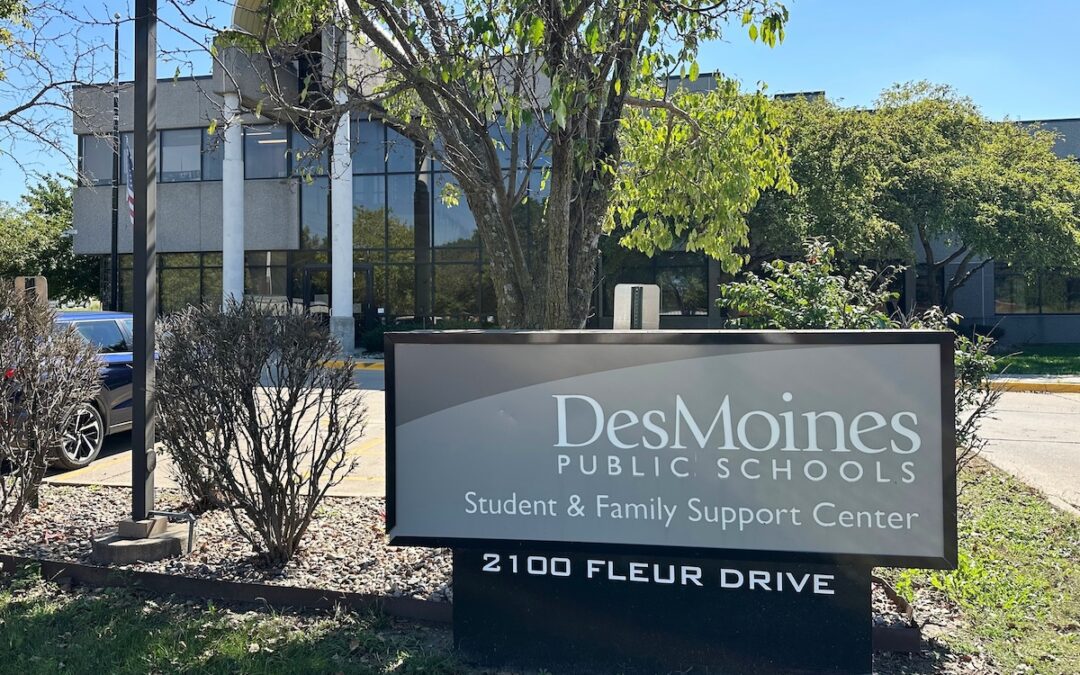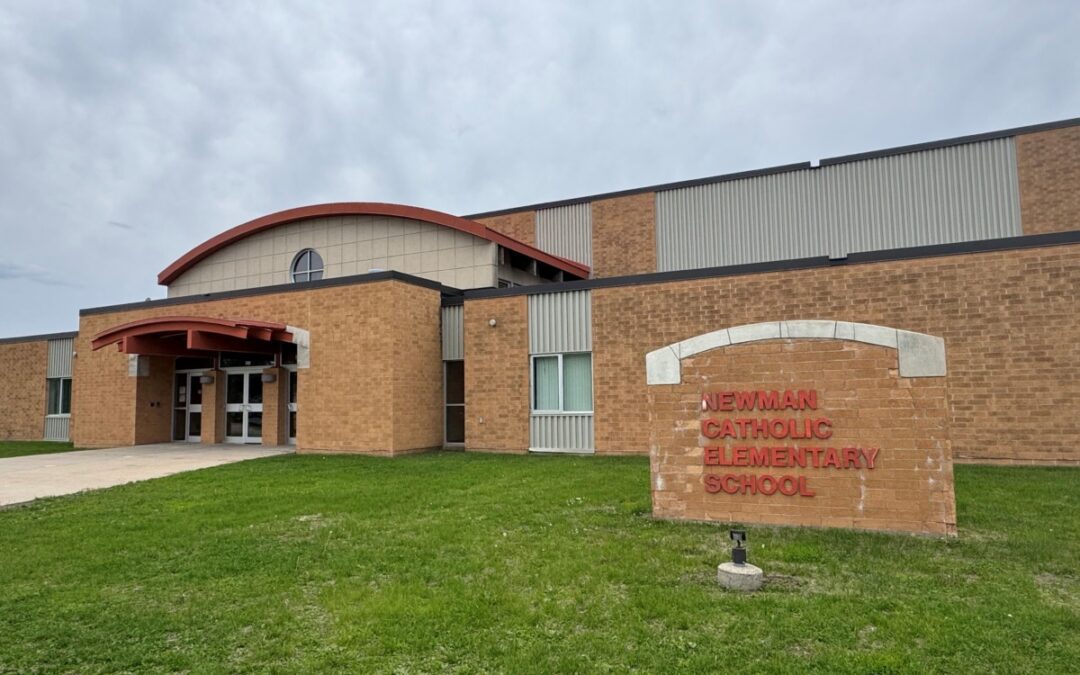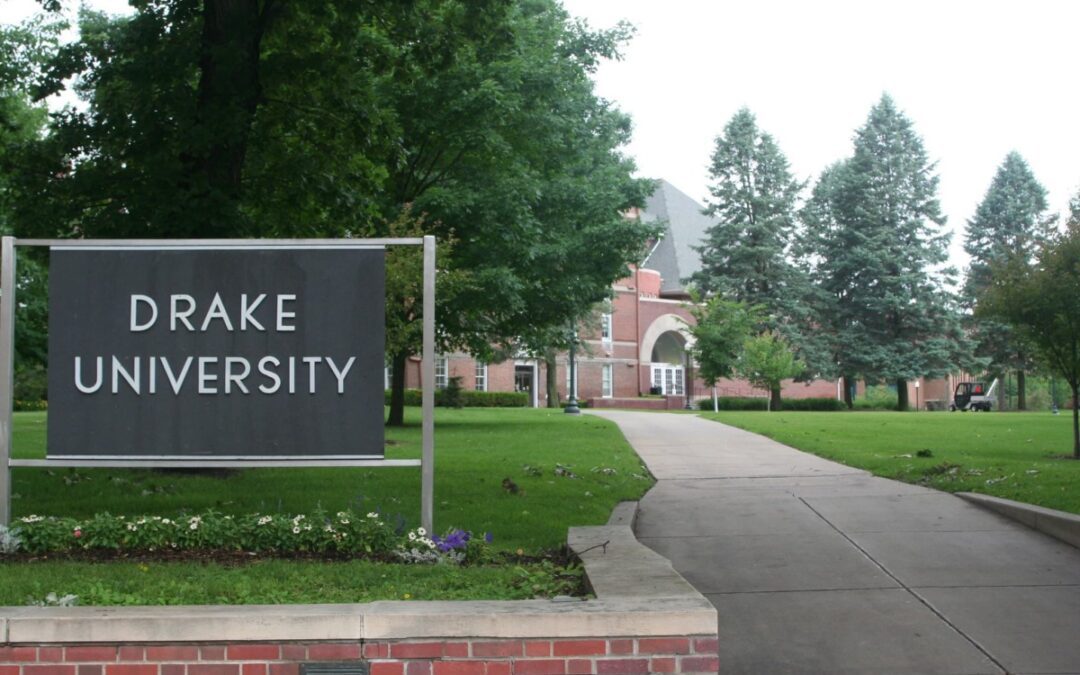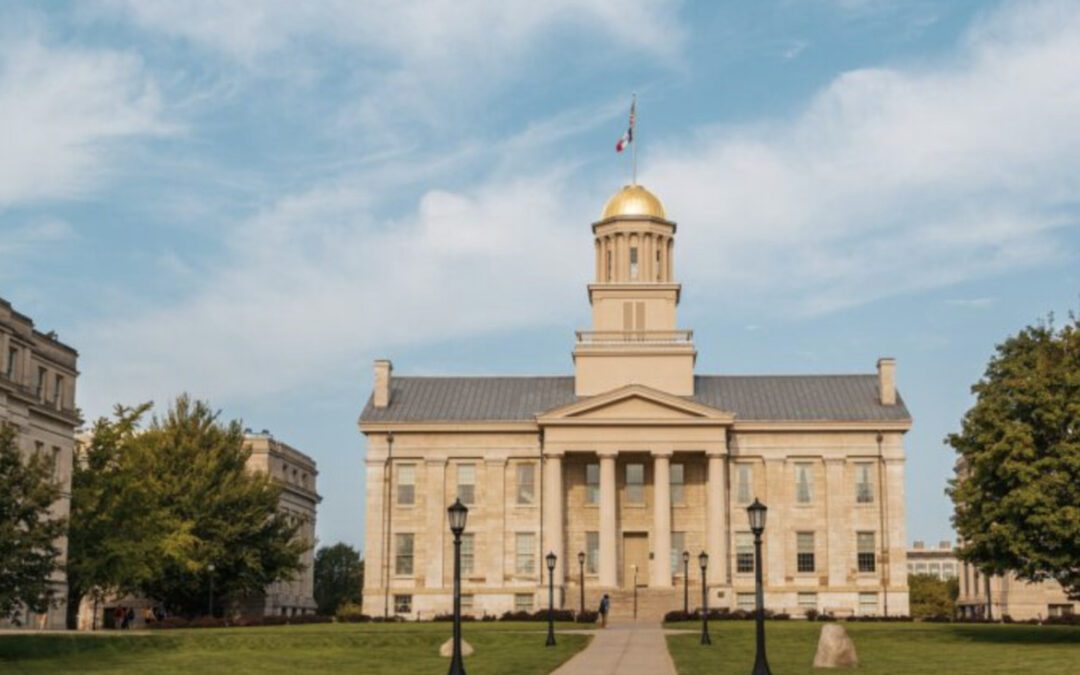
The Iowa House Chamber, file photo. Photo by Ty Rushing/Starting Line
Rep. Chuck Isenhart (D-Dubuque) can already see the writing on the wall for Iowa’s Area Education Agencies (AEAs), after Thursday’s Iowa House vote to move forward in implementing large-scale changes to the agencies.
During the House debate on its amended AEA bill, Isenhart laid out exactly how he thinks Republicans will use this bill to eventually dissolve AEAs, which provide services to students with special needs.
“We are picking apart the AEAs,” he said. “Pulling threads out—undermining their financial and service integrity. They will not be improved, they will be at greater risk of actual failure. In a few years, the [Iowa] Department of Education and the governor will say, ‘See, the system’s a failure, the state has to completely take it over.’
Isenhart said then the state would privatize it as it has done for many other public services during the last eight years of Republicans holding a trifecta in the House, Iowa Senate, and governor’s office.
“Then, parents and students, good luck getting the quality services you need in a timely and accessible way from teachers and other professionals who are paid what they’re worth and have job security,” he said. “That’s the story, I’m sticking to it. Please prove me wrong.”
The bill passed with 53 “yes” votes—all Republicans—while nine Republican reps joined 32 House Democrats in voting against the legislation. Six House members did not vote on the bill.
AEAs were formed in the 1970s to provide educational equity throughout Iowa via nine regional service providers. Under current law, Iowa school districts allocate state and federal special education dollars to AEAs—AEAs also have property tax levies— and in return, AEAs provide a wide array of services to districts.
Making major changes to AEAs has been one of if not the top legislative priorities for Gov. Kim Reynolds this session. Her initial proposal—which was based on an out-of-state report and without much guidance from Iowa stakeholders—was not well received.
Rep. Skyler Wheeler (R-Hull) acknowledged how unpopular Reynolds’ bill was during the debate and said the rollout for it “sucked.” This is why House Republicans crafted their own version of the AEA bill and then released an amended version of that bill shortly before the debate.
“This bill is not based on any report or on NAEP (National Assessment of Education Progress) scores, this bill is organic,” Wheeler said. “We killed the other bill and we started from scratch. The very next day, the Speaker [Pat Grassley] had the AEAs in and superintendents from all over the state to meet with him.”
In a release shortly after the bill’s passage, Reynolds praised the actions of House Republicans and leadership who advanced the legislation. She also took another swipe at AEAs by saying the “system is failing our students.”
“Improving student outcomes has always been at the forefront,” she said. “The system must provide transparency and accountability to school districts, those closest to our students, and drive consistency across the AEA regions to improve services for students with disabilities. That’s what I’ve heard from over 100 school districts as I’ve traveled the state, and I look forward to more conversations as the legislation moves forward.”
Wheeler said he intends to see the House version of the bill through to the finish line, but the Iowa Senate could make changes or go with its version of the bill that is eligible for debate on that side of the chamber.
During a Thursday morning press conference before the House Debate, Senate Minority Leader Pam Jochum (D-Dubuque) pondered if the Republican majority is going to be able to reach a consensus on AEAs, a topic that is near and dear to her.
“The House, Senate, and the governor—Republicans are in disarray,” Jochum said. “They have not reached an agreement on the AEAs and because of that, they have not been able to—at least in the Senate chamber—decide on how much funding will even be available to the school districts in the coming year.”

What we know about Ian Roberts, the Des Moines Superintendent arrested by ICE
The former Des Moines Public School superintendent’s arrest by ICE has garnered international attention and prompted a closer look at his...

Urbandale now 6th Iowa school district to protect trans and nonbinary students
Urbandale has joined five other Iowa school districts in voting to protect its transgender and nonbinary students. Following the removal of gender...

Iowa Board of Regents tries banning university courses that teach about social justice
The Iowa Legislature passed a bill this session banning diversity, equity, and inclusion programs and trainings by "public entities," including...

Critics warn of ‘money laundering’ as Iowa expands school voucher program
Iowans have a right to know how their taxpayer dollars are being used—but when it comes to the state's private school voucher program, that’s not...

Find your passion at Drake University summer camps
Discover your passion at Drake University's 2025 summer camps! From voice training to business innovation, find the perfect program for high...

University of Iowa ranks high in US News grad school rankings
The University of Iowa boasts 52 programs recognized by US News for excellence, with rankings in the top five, highlighting its diverse academic...





